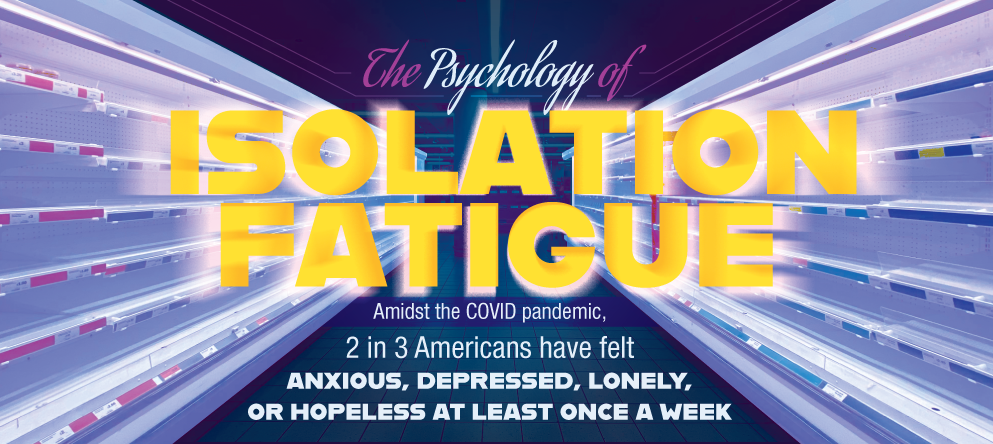We are living in unprecedented times, and what happens in unprecedented times is that our brains try to find the closest amalgamation of current events in an attempt to cope with changes. The problem is that very few living people have a framework for how to live through a pandemic, and that fact is playing out in grocery store aisles and telehealth therapy sessions across the world. There are some really obvious mental health answers in times like these, and understanding the underlying reasons why you are doing otherwise irrational things can help you get through these trying times with a little grace.
We’ve seen a run on all kinds of things at the grocery store, and while most of us think that toilet paper is the most purchased item right now, it’s actually baking yeast. But why is everyone buying up everything they can find when grocery stores are assuring us there is no threat to the supply chain for most things?
To best understand this psychological short-circuiting of your brain, you have to first understand a little bit about human evolution. While we evolved to be rational using our frontal cortex, thousands of years ago when early humans were still largely nomadic hunter-gatherers, they relied on the amygdala to make life and death decisions, as most decisions were back then. But as our lives became less dangerous day-to-day we were able to rely on reason to make better choices.
In times of great stress, the amygdala is the one calling the shots. While our frontal cortices might tell us we don’t really need more toilet paper or baking yeast, our amygdalas start screaming that this might be our last chance. This is the same reason that hackers are working overtime right now – they know you aren’t at your most rational and are more likely to react to a phishing attempt if they convince you it has to do with your survival.
So while you might feel a tinge of shame over your stockpile of toilet paper, you definitely aren’t alone and you reacted the best way you could under exceedingly difficult circumstances.
Over time, however, the stress that is meant to keep you alive gives way to indifference. You can only sustain high stress levels for so long, and then your brain just stops accepting more bad information. Once people begin to feel overwhelmed, they are more susceptible to misinformation, such as believing YouTube “science” over science from actual scientists, or believing misinformation spread through online articles on social media.
Our brains think in a linear fashion, and since the pandemic is spreading exponentially we can’t fully comprehend the level of danger we are facing as we move forward. Eventually we suffer from compassion fatigue and stop accepting the reality of the situation in favor of the reality we want to be true.
What’s more, those responding to the pandemic on the front lines are going to experience higher rates of PTSD and suicide than the rest of the population because of the necessity of being face-to-face with the realities of this pandemic day in and day out.
It’s important to get help if you are feeling overwhelmed or if you even just feel that you are not making rational decisions. Teletherapy options are available more now than they ever have been before, and most insurance plans are covering those options. Learn more about the psychology of isolation fatigue from the infographic below.



